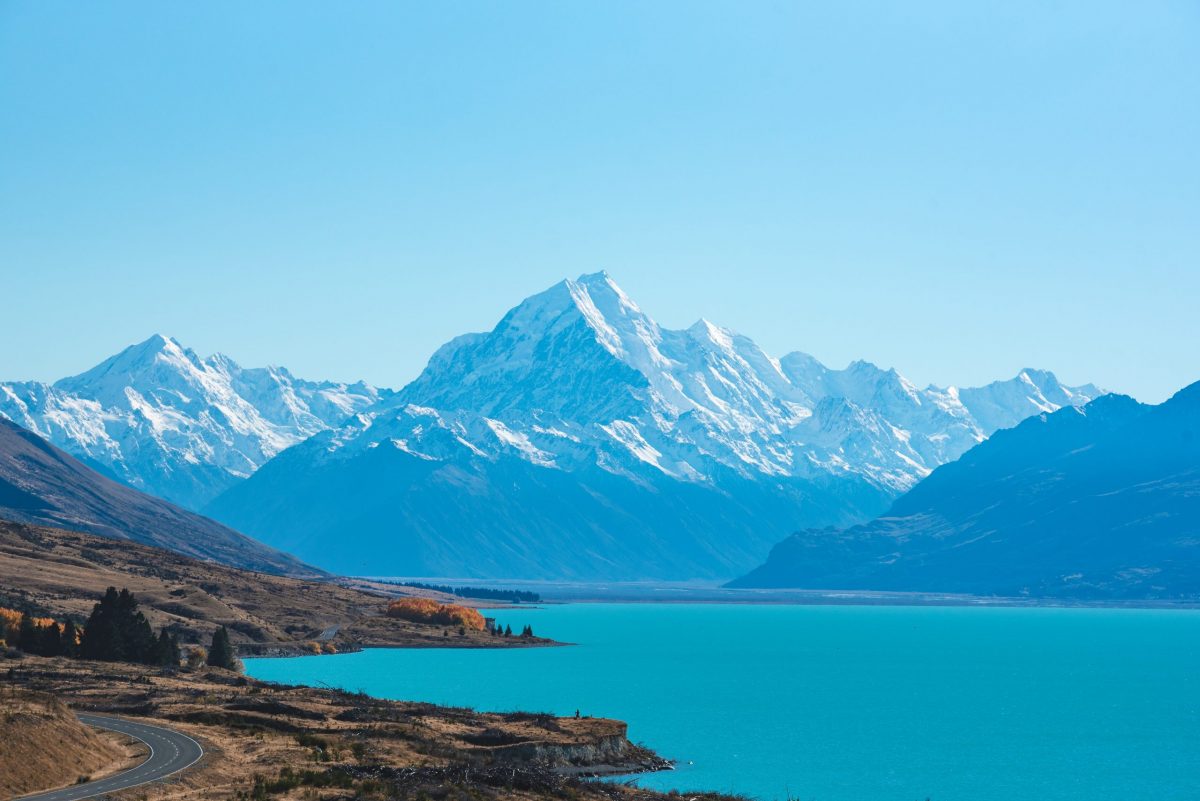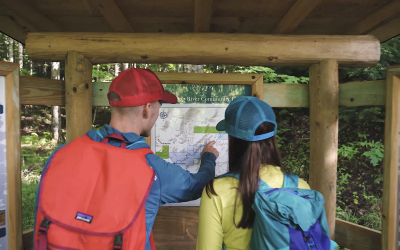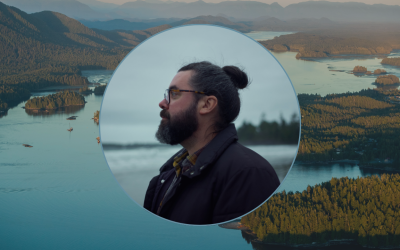Decarbonization will be at least as disruptive to travel as the internet was.
The world is finally turning toward the climate crisis with coalitions, technologies, policies and economic incentives that are needed to coordinate the effort to decarbonize. Leaders in the travel industry must get ahead of the climate reckoning that is coming, even as the pandemic flattens tourism in so many places.
If you didn’t have a pandemic readiness plan, 2020 probably caught you off-guard, like most people. Many destination marketers have listed global crises on their SWOT assessments, but few were prepared for the extent of the travel shutdown or the enormous human impact caused by the virus. Necessary health precautions have led to restrictions on movement, grounded airlines and shuttered tourism businesses.
Devastating as COVID-19 has been, it is one crisis sitting atop a much larger one: the climate emergency. The world has had ample warning. Still, the impact of accelerating climate change will require much of the tourism industry to fundamentally change the way it does business to reduce greenhouse gas (GHG) emissions in line with global targets.
Progress toward decarbonizing tourism has been incremental at best, but recent, radical public policy changes show that some governments are working to catch up. New Zealand is introducing plans to reduce economic risks by making climate-related financial disclosures mandatory among large insurers, banks, and publicly traded companies. Other decisions directly affect travel. The French government has banned domestic flights that could be travelled via train in under two-and-a-half hours.
Public support for climate action is also growing. The inaction following the 2015 Paris Agreement was one catalyst for climate strikes that have galvanized support from millions of people across 185 countries. Popular uprisings like Fridays for Future or School Strike for Climate have nudged sustainability further into the mainstream.
A low-carbon future is coming, ready or not. Travel will play a pivotal role in the necessary changes, and leadership and participation from destinations like yours will be vital. COVID-19 has shown, briefly, what a world without air travel or cruises looks like. It has revealed the travel industry’s vulnerabilities. Many economies are dependent on tourism income, and imagining the world without travel is a scary prospect, but tourism itself is not essential for human survival. Public policymakers can, at a moment’s notice, heavily regulate travel to restrict movement in support of a greater public good.
Today’s travel restrictions were designed to halt the spread of disease. Imagine, though, what might have been possible with the benefit of preparedness. Might some destinations have lessened their reliance on international visitors and moved toward a more balanced business mix? Local cases vary, but one of 2020’s most powerful lessons is that today’s planning is tomorrow’s gain.
Climate change will continue to shape public policy. If your DMO does not have a plan to align its tourism industry with the Paris Agreement, the impact will be steep. COVID-19 has provided pause to think about how your destination will emerge and build resilience into that recovery.
Today, destination leaders have strategic choices to make. Here are a few examples:
Partnerships – Find out how your DMO can join the growing cohort of those committed to proactive change. Visit Scotland is among the 230+ signatories to declare a climate emergency with Tourism Declares. A further 500 representing a cross-section of the travel industry have signed onto the Future of Travel Coalition’s guiding principles.
Product development – New technologies for reducing fossil fuel consumption will also lead to partnership opportunities. All-electric and hydrogen-electric commercial aircraft will soon be in use. Hyperloop projects may make rapid travel far more efficient. Which airports or cities will be the first to attract innovations like these? Meanwhile, United Airlines has invested in carbon sequestration technology with the potential to create jet fuel from thin air, and Intrepid Travel has been leading natural sequestration solutions through their Giant Kelp investments.
Markets – In a climate-changed world, are your destination’s legacy source markets still the right ones? Though controversial, destinations like Hawaii Tourism Authority and Tourism New Zealand are shifting strategy toward high net-worth visitors in the ecotourism space. Other options may include focusing on near-in markets.
Leadership – Has your destination completed an assessment of its carbon footprint? Before long, success might be measured by the amount of GHGs per traveller, or per dollar spent. Your destination can actively work to reduce emissions and help your country, state or province align with targets set by the Paris Agreement. Several nations have written net-zero emissions targets into law, including France, Hungary, and the U.K. A key part of leadership is education. Are you adequately informed on the state of our climate and resulting implications for your business?
Reputation – Many destinations rest their brand on their natural environment. Are they living up to that promise? The stance your leaders take toward decarbonization will affect your place’s reputation. Consider the implications for your brand as demand for climate action grows. Destinations that genuinely take the lead on this through action will benefit.
Organizations – What skills will your DMO need to compete and lead in these areas? This may be the time to reevaluate, because the timeline for decarbonization is getting shorter. Destinations reliant on long-haul flights or cruise ships will need to reckon with the move toward low-carbon transport. Leaders here need to become familiar with CORSIA, the international project to account for GHGs emitted from international air travel.
Many places need a strategic renewal, and Destination Think is working with some DMOs to adjust their strategy to align with Paris Agreement targets or go beyond.
Decisive action on climate is, at this point, the only way toward long-term prosperity.
If you are just beginning to think about how climate change will disrupt our industry, welcome. But don’t delay too long. Be aware that many nations and coalitions are moving fast on climate to make up for lost time, including the E.U., Japan, Germany, and now the U.S. under President Joe Biden.
Watch the financial indicators. Biden’s proposed $2 trillion American Jobs Plan aims to place the U.S. ahead when it comes to sustainability and green technologies by focusing on climate-related infrastructure investments. We have already seen the soaring share prices of companies like Tesla, QuantumScape, and ChargePoint. The price of a carbon credit, too, increased 35% in 2020. The biggest carbon emitters will have the biggest bills to pay, which means carbon-free initiatives will only become more valuable.
The world is about to decarbonize whether you are prepared or not. This may feel overwhelming and discouraging, but decisive action on climate is, at this point, the only way toward long-term prosperity.
The future of tourism must lead to prosperity for people and the planet. At Destination Think, this is the future we want to be a part of. This is what we are working on while the pandemic keeps us at home. This is the future we can create together.










Thanks for this, well said. The topic has been swirling around in the back of my mind, whilst we are all quietly being taught to be ready. I think after the pandemic it will be hard to bring the tourism industry into some sort of submission around preparedness, some will, but it will need to come as a large force.
Catherine, it is inevitable that there will be conflict with entrenched interests and beliefs. The smartest destinations will recognize that we’re about to experience fastest pace of change humanity has ever experienced and see the business risk of returning to how we operated in 2019 instead of using this as a time to get ahead of the opportunities.
Thanks for the complete review on the state-of-the-art at international and national level. Furthermore, there are good examples from local destinations, some of them collaborating with Future of tourism Coalition. For instance, in València (Spain) we are committed to cope with this challenge. Our city has declared climate emergency, and the Mayor has approved a “Mission” to become a carbon neutral city https://www.missionsvalencia.eu/primera-mision-ciudad-neutra/?lang=en.
The local visitors economy must be aligned with the community. Thus, Visit València (a public-private DMO), launched the Sustainable tourism strategy in 2020, and the first outcome was to become the first city in the world to calculate and certify its tourism carbon footprint: https://www.unwto.org/covid-19-oneplanet-responsible-recovery-initiatives/the-decarbonization-of-tourism-in-action-the-case-of-valencia.
Should you are interested to know more about, please visit our website (https://fundacion.visitvalencia.com/en/sustainability) and do not hesitate to contact me back.
Thanks Jaume, I’ve been watching your work with interest. I’d love to connect and have sent you an email.
Thanks for your insights, Rodney – very well written and concise analysis which I enjoyed. Totally agree – there is much work to be done in this field.
All the best
Peter
There is one similarity between covid and climate change and that is that if they had done nothing about covid I would be better off. More people would have died though. When it comes to New Zealand there is currently no real benefit to New Zealand in doing something about climate change. Climate change will be devastating for some countries and New Zealand isn’t one of them. Literally the actions we take serve to benefit other countries which may not even be taking action on climate change.
Simply put, action on climate change does not enhance New Zealand’s prosperity. I’m sorry I wish it did.
The only way in which it would make sense for New Zealand to reduce its emissions is if there is a compulsory international agreement to do that. However if there was it would be as bad for tourism as covid due to New Zealand tourism relying on long haul jet travel.
Andrew, I think it is a perfectly normal to think one particular area will be less impacted by a changing climate. At one point, I wondered the same about British Columbia where I live. The risk that you point out (of international agreements around pricing carbon from international aviation) is one to be mindful of as the climate crisis escalates. You have to gauge your own probability around likelihood and timeframe. I always like to be ahead of risks in order to prepare. Leaving aside the inter-connectedness of the global economy, or the morale imperative and associates with brand/reputation, I’d strongly urge you to research the impacts that climate chaos will have and is already having in your part of the world on snowpack levels, drought, fire risk and the corresponding impacts on agricultural yield, food prices, insurance costs and impact on property market, etc. Many of these are systemic. NZ is far from immune from the extremes and impacts of a warming world.